
The majority of HIV infections are sexually transmitted or are associated with pregnancy, childbirth and breastfeeding.
Our work links prevention with treatment, care and support, reduces HIV-related stigma and discrimination, and responds to unique regional and national characteristics of the epidemic.
Articles about HIV and STIs
At a Glance 2012
Key facts and figures highlighting IPPF's achievements in 2012. IPPF provided 112.7m sexual and reproductive health services and averted 550,000 unsafe abortions.

Vision 2020 Manifesto
In 2000 the United Nations launched the Millennium Development Goals. The world agreed to take action against poverty. Although progress has been made, we are still far from eradicating poverty. Sexual and reproductive health and rights (SRHR) are central to this vision. Sustainable development and gender equality will be achieved when everyone has access to sexual and reproductive health, the right to bodily integrity, and control over all matters related to their sexuality. Millions of lives have been saved and changed through reproductive health services. In many regions, laws and policies are in place to protect reproductive rights and prevent discrimination against women and girls. However, despite these advances there are still challenges: global funding for SRHR has decreased radically while 222 million women and girls world-wide still lack access to the contraceptives they want to use. The next few years will see the creation of a new development framework. This presents us with an unparalleled opportunity to secure a world of justice, choice and well-being for all. Ultimately, it will lead to sustainable development. IPPF is inviting partners and supporters in the development community and beyond to make these goals a reality in every community around the world. Sign up today to pledge your support. We'll keep you informed with latest news and details on how you can get involved.
At a Glance 2011
Key facts and figures highlighting IPPF's achievements in 2011. IPPF provided 89.6m sexual and reproductive health services and averted 710,000 unsafe abortions.

Men-streaming in sexual and reproductive health and HIV
This toolkit helps to affirm policies which promote the postive roles that men can play in improving their own sexual and reproductive health - and those of women and children. It also highlights how engaging men in sexual and reproductive health and rights and HIV policies, can help move towards the goal of gender equity.
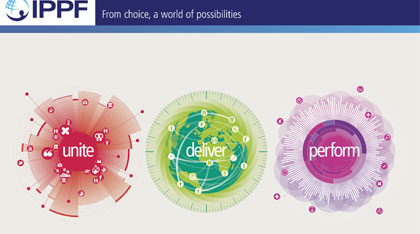
Annual Performance Report 2011-12
2012 is IPPF’s 60th year. The Annual Performance Report confirms, once again, IPPF’s vital role in human development. It opens with an overview of the external challenges that threaten sexual and reproductive health and rights (SRHR). Despite these challenges, IPPF continues to deliver impressive results. In 2011, Member Associations contributed to 116 policy and/or legislative changes in support or defence of sexual and reproductive health and rights (SRHR). The Federation as a whole provided 89.6 million SRH services with the majority going to the poor and vulnerable, including young people. Robust systems and processes have ensured that money has been invested cost-effectively where it is most needed.
At a Glance 2010
Key facts and figures highlighting IPPF's achievements in 2009. Sexual and reproductive ill health causes over 30% of the global burden of disease among women of childbearing age and without IPPF, this burden would be even greater.
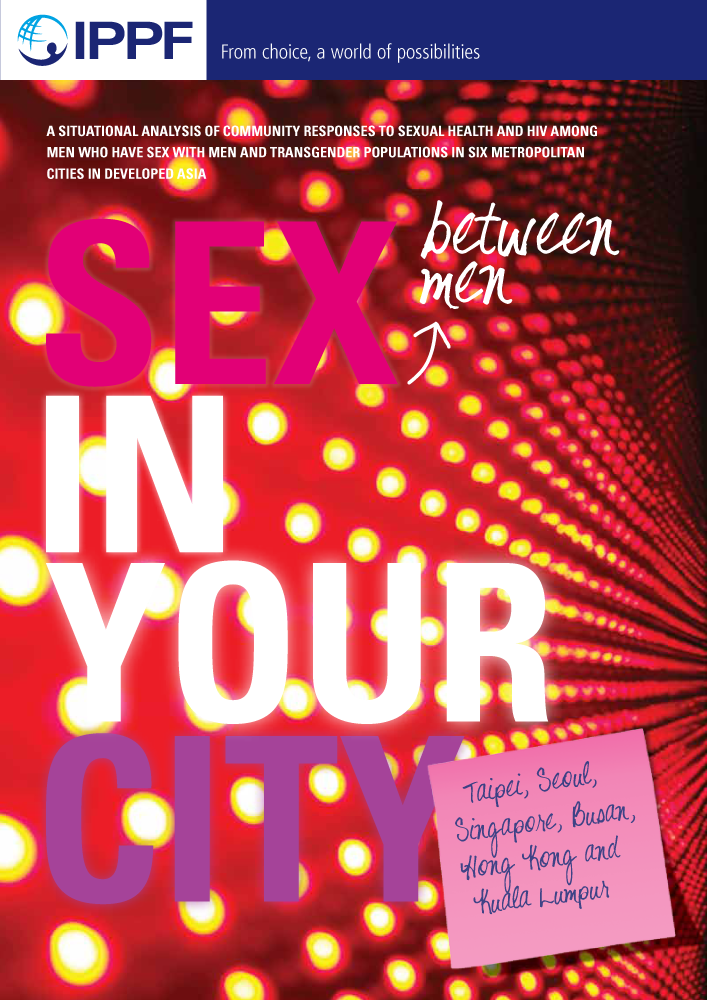
Sex Between Men In Your City
Community responses to the sexual rights of men having sex with men and transgender people in 6 Asian cities.
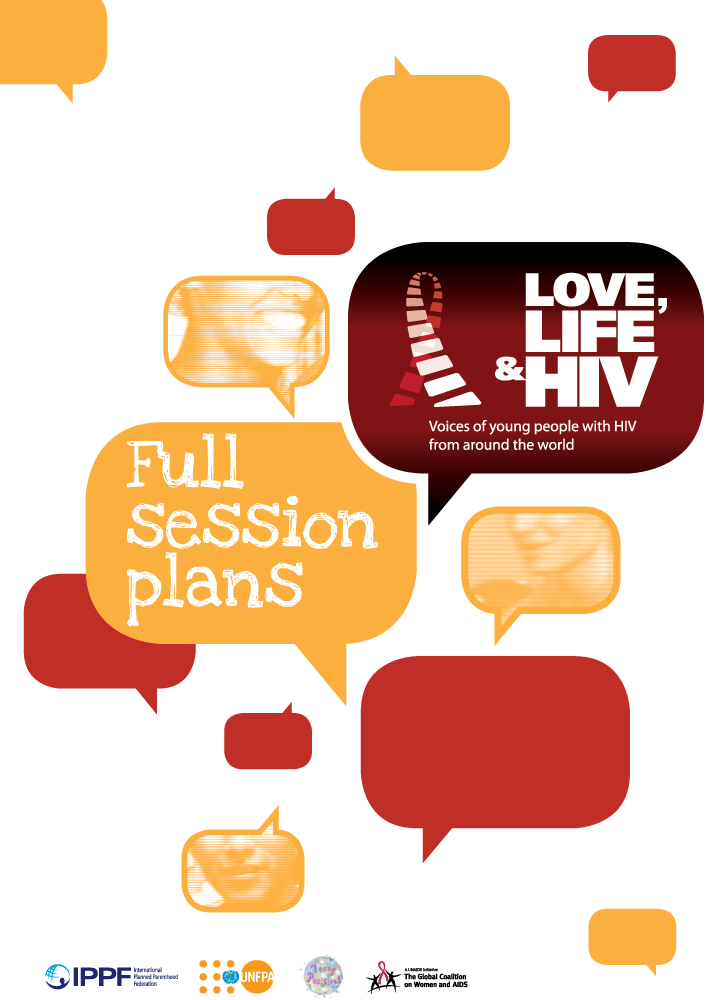
Love, Life and HIV: Voices of young people with HIV
This toolkit is designed to explore the issues raised in the DVD (produced at the same time). It provides information on how to reduce HIV-related stigma and discrimination; and it aims to develop a greater understanding of what it means to be young and living with HIV.
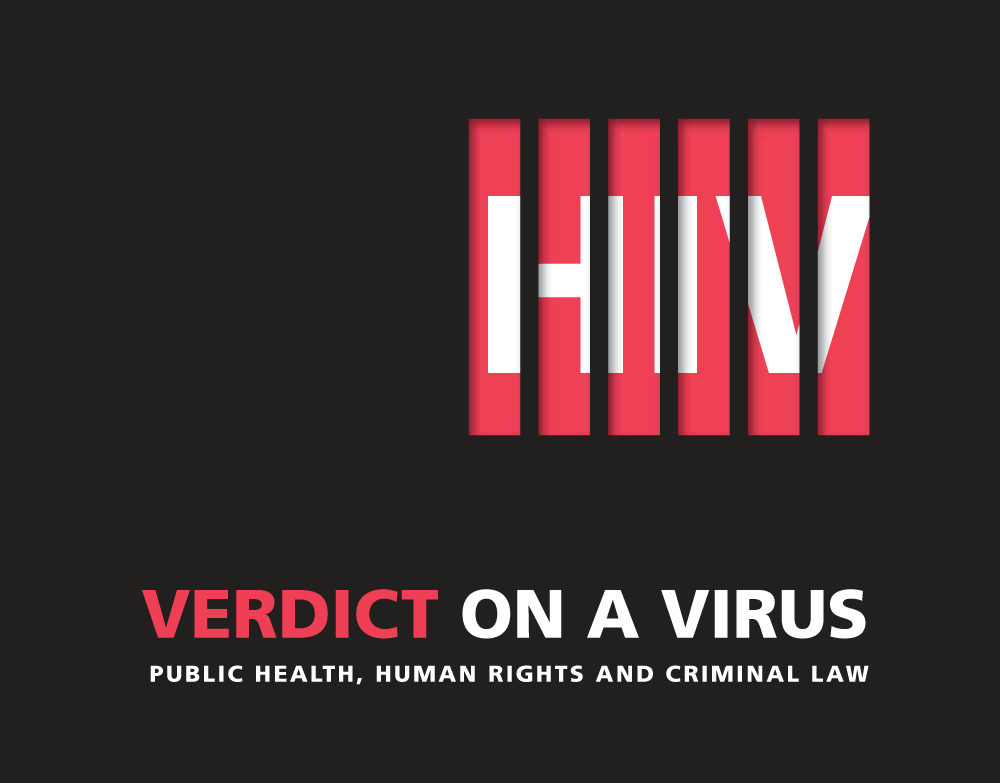
Verdict on a Virus: Public health, human rights and criminal law
Verdict on a Virus is based on the voices of leading legal and judicial experts, UN advisors and people living with HIV. It provides examples from around the world which strengthen our understanding of the criminalization of HIV transmission and exposure.
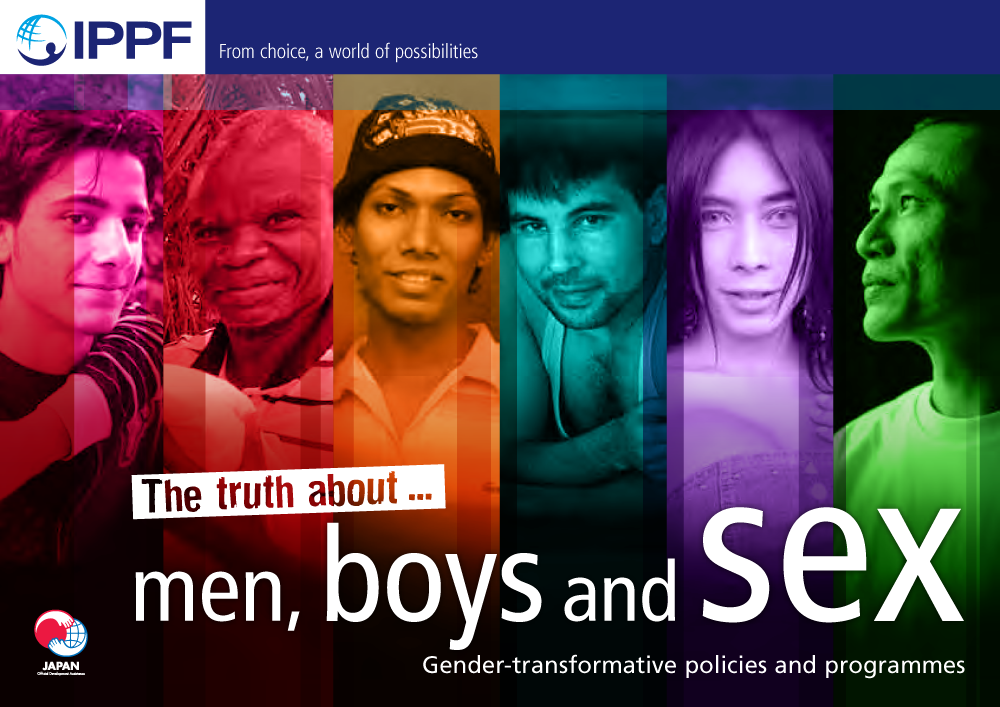
The Truth About Men, Boys and Sex: A gender-transformative guide
Over the last 25 years, much has been learned about HIV – its properties, its management and its tendency towards the path of least resistance in communities already facing poverty and prejudice. Globally, that line runs through some of the world’s least powerful communities: the poorest, most disadvantaged, stigmatized and under-developed groups, whose members carry an increasingly disproportionate share of the world’s HIV burden. In many countries, young women are three times more likely to be HIV positive than young men while in other regions of the world men are at the forefront of the epidemic. With this dynamic nature of HIV, it is imperative that every response is characterized by its ability to be increasingly relevant and meaningful. However, irrespective of the country or region, approaches that actively seek to transform gender norms and inequality need to find a stronger foundation in the work of sexual and reproductive health and HIV programmes. The essence of these programmes must empower young women and girls and provide supportive legislative frameworks. But concurrently they should ensure that men and boys – with different behaviours and sexual orientations – can find the avenues to transform their lives as individuals, partners, husbands, fathers, sons and brothers. Sexual Rights; An IPPF Declaration underlines this approach and identifies the rights of everyone to sexual autonomy, non-discrimination and choice. The IPPF Japan Trust Fund for HIV/AIDS was established in 2000 to strengthen and build the capacity of IPPF Member Associations and enable them to carry out effective, innovative and comprehensive HIV programmes. A key part of their distinctive nature is that they are based on the specific needs of individual countries and localities. As a key signatory to The Code of Good Practice for NGOs Responding to HIV/AIDS, IPPF promotes this needs and rights-based approach that has linked HIV and sexual and reproductive health and rights responses and has focused on the realities of people’s lives – the lives of men and women who are particularly vulnerable to or at risk of HIV. This publication illustrates what IPPF and its Member Associations have achieved through their energetic activities. This unique combination of case studies and interviews from six countries in Africa, Asia and Latin America – with the opinion pieces penned by experts in their field – serves as a reminder that progress on the rights of women and girls is intimately linked to ensuring that men and boys are equal partners in this dialogue. The truth about safeguarding the sexual and reproductive health of women and girls necessitates that men and boys are actively encouraged to protect their own health.
Pagination
- Previous page
- Page 16
- Next page






